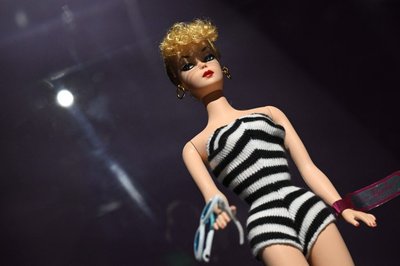The film "Barbie" released on July 21 to critical acclaim and box office success. The movie is based on a toy line with some interesting historical roots.
- When the first dolls came out, there was nothing else like them.
Ruth Handler got the idea for the Barbie doll when she noticed that her daughter often assigned adult roles to the baby dolls she played with. Now, the idea of a doll that looks like an adult might seem obvious, but in 1959, it was revolutionary in America. Handler based her design off Lilli, a German doll initially sold to adults, named the doll after her daughter Barbara, and sold 300,000 dolls in the brand's first year.
2. Legal issues came up almost immediately
Louis Marx and Company, the manufacturer of Lilli, sued Mattel in 1961 for copyright infringement of the patent for Lilli's hip joint, saying that Barbie was a "direct take-off and copy" of Lilli. The case was settled out of court, and Mattel bought the copyright for Lilli in 1964.
3. Black Barbie dolls existed as early as the 1960s.
Mattel's efforts to make more diverse versions of Barbie began a few years after the line's original launch, though "Colored Francie" in 1967 and "Christie" in 1968 were created using the same molds as the main Barbie line. It wasn't until 1990 that Mattel created new molds with different facial features, skin tones and hair textures for Barbie models from different ethnic and racial backgrounds.
4. Handler lost control of her own creation in 1974 after being convicted of tax fraud.
Handler's last change to the doll was to make the eyes look forward instead of sideways in 1971, but three years later, she and her husband were fired after being found guilty of tax fraud. She's depicted in the film, and surprisingly, the tax fraud case is referenced.
5. The film took almost fifteen years to develop
The idea of a Barbie film was first announced in 2009 when Mattel signed a deal with Universal Pictures, but the project's development didn't truly begin until 2014 at Sony. Comedian Amy Schumer was the first choice as writer and star, but she left over creative differences. Anne Hathaway was the next announced star in 2017, but Mattel regained the rights to the film and began preparing their own take, to be released in 2020 starring Margot Robbie.
After reading writer-director Greta Gerwig's script, Robbie reportedly thought that “What a shame it will never see the light of day, because they are never going to let us make this movie.” But after three more years of pandemic-caused delaying, the film finally saw the light of day, and is on the road to being one of the biggest hits of the year.
Benjamin Thernstrom, a senior at Washington-Liberty High School in Arlington, Virginia, is an intern with PBS NewsHour Classroom. You can read his movie reviews on LetterBoxd.


